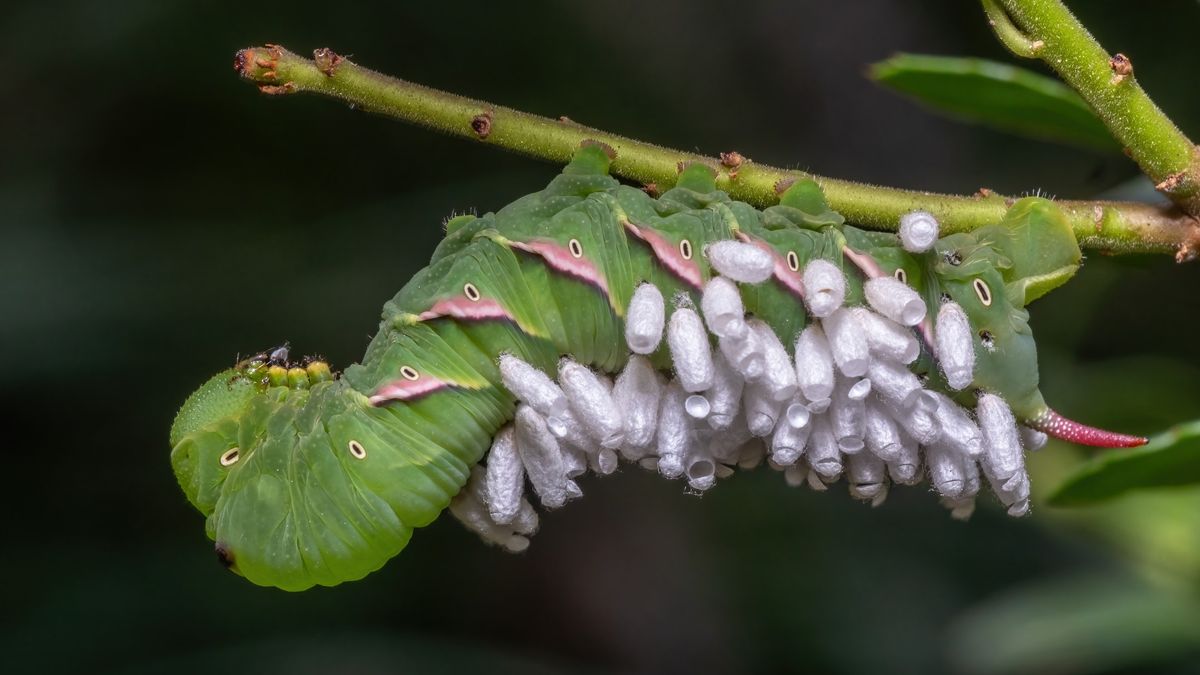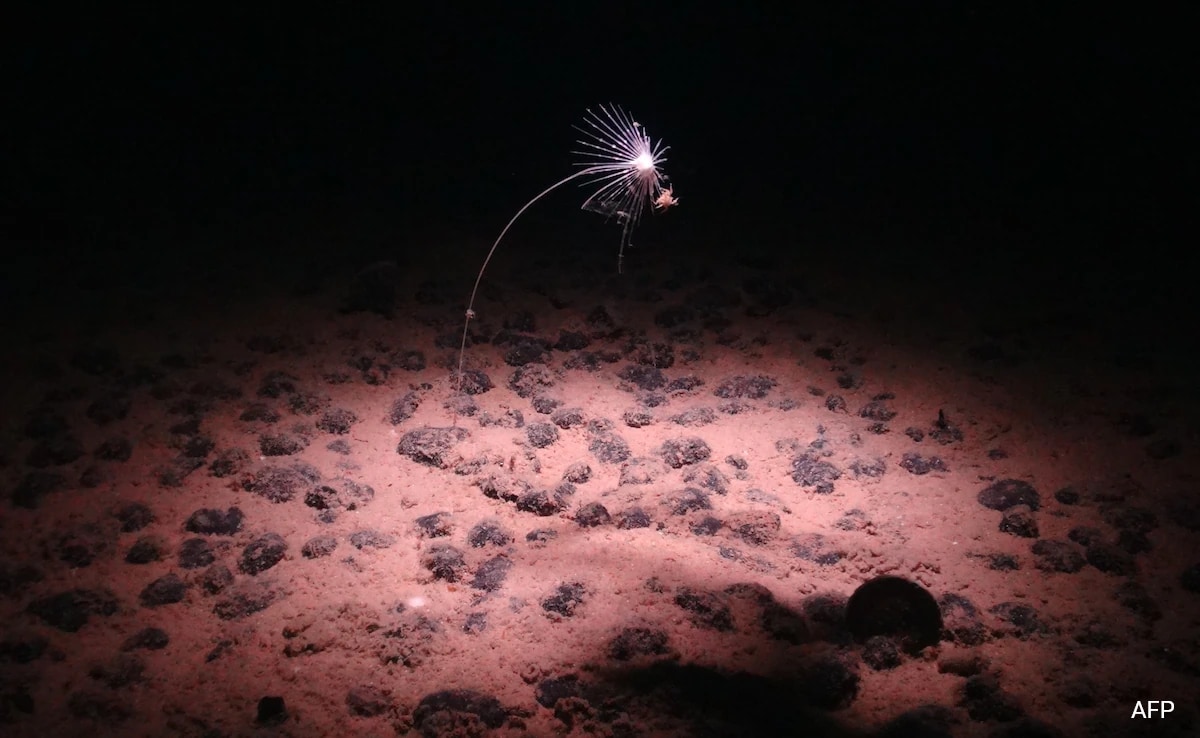When Parasites Hijack: Nature's Most Disturbing Mind Control Experiment
Science
2025-04-15 15:54:22Content

In the dark and fascinating world of parasites, nature reveals its most bizarre and manipulative strategies for survival. Science writer Mindy Weisberger delves into the extraordinary realm of parasites that transform their unsuspecting hosts into zombie-like puppets, compelling them to act against their own survival instincts.
These microscopic puppet masters have evolved remarkable techniques to control the behavior of ants, beetles, caterpillars, and other creatures. By hijacking their hosts' neural systems, these parasites can orchestrate complex behavioral changes that serve their own reproductive and survival needs.
Imagine an ant climbing to the top of a blade of grass, not of its own volition, but because a parasite has taken control of its brain. Or picture a caterpillar becoming an unwilling guardian, protecting the very parasite that has invaded its body. These are not scenes from a science fiction movie, but real-life examples of nature's most cunning survival strategies.
Weisberger's research reveals a world where parasites are not just passive hitchhikers, but active manipulators capable of fundamentally altering their host's behavior. It's a testament to the incredible complexity and ruthless efficiency of evolutionary adaptation.
Parasitic Mind Control: The Terrifying World of Zombie Hosts in Nature
In the intricate and often bizarre realm of biological interactions, some of the most fascinating phenomena occur when parasites manipulate their hosts' behaviors, transforming them into unwitting agents of survival and reproduction. These microscopic puppet masters demonstrate an extraordinary ability to override natural instincts, compelling organisms to act against their own survival interests in ways that seem like something out of a science fiction narrative.Unraveling Nature's Most Shocking Behavioral Manipulation Strategies
The Neurological Hijacking Phenomenon
Parasitic mind control represents a sophisticated evolutionary strategy where microscopic organisms fundamentally alter host neural pathways. These intricate manipulations transform seemingly ordinary creatures into zombie-like entities, programmed to serve the parasite's ultimate reproductive goals. By infiltrating complex neurological systems, these organisms can override fundamental survival instincts, creating scenarios where hosts willingly sacrifice themselves. Researchers have documented numerous extraordinary examples across diverse ecosystems. Some parasites chemically rewire neural networks, inducing behavioral changes that appear almost supernatural. These transformations challenge traditional understanding of biological agency, revealing how vulnerable complex organisms can be to microscopic interventions.Remarkable Case Studies of Parasitic Manipulation
The animal kingdom presents astonishing examples of parasitic mind control. Certain fungal species infect ant colonies, compelling infected individuals to climb vegetation and position themselves in optimal locations for spore dispersal. These infected ants essentially become living transmission platforms, their bodies transformed into reproductive vessels against their inherent biological programming. Similarly, some parasitic wasps target caterpillar populations, laying eggs within host bodies. Upon hatching, larvae systematically consume internal tissues while simultaneously manipulating host behaviors. The caterpillar becomes a protective shield and mobile nutrition source, demonstrating an incredible survival strategy that prioritizes parasite reproduction over host preservation.Neurochemical Mechanisms of Behavioral Transformation
Advanced scientific research reveals complex neurochemical mechanisms underlying these manipulations. Parasites deploy sophisticated biochemical strategies, releasing neurotransmitter-like compounds that disrupt normal neural signaling. These interventions can modify hormone production, alter sensory perception, and fundamentally reconfigure behavioral patterns. Molecular studies suggest these parasites possess intricate genetic toolkits enabling precise neurological interventions. By targeting specific neural pathways, they can induce precise behavioral modifications without completely destroying host functionality. This selective manipulation represents an evolutionary marvel of biological engineering.Ecological and Evolutionary Implications
Parasitic mind control strategies offer profound insights into evolutionary adaptation mechanisms. These interactions demonstrate how organisms develop increasingly sophisticated survival techniques, challenging conventional understanding of biological relationships. The delicate balance between host and parasite represents a dynamic evolutionary arms race, where each organism continuously develops more advanced strategies. Ecological researchers argue that these manipulative relationships play crucial roles in maintaining complex ecosystem dynamics. By influencing host behaviors, parasites can indirectly regulate population distributions, predator-prey interactions, and broader environmental equilibriums.Technological and Scientific Frontiers
Understanding parasitic mind control mechanisms opens fascinating research possibilities across multiple disciplines. Neuroscientists, geneticists, and behavioral ecologists collaborate to decode these intricate biological interactions, potentially developing groundbreaking insights applicable to medical, technological, and environmental domains. Emerging research suggests that studying these parasitic manipulation strategies could revolutionize our understanding of neural plasticity, offering potential therapeutic approaches for neurological disorders and advanced treatment methodologies.RELATED NEWS
Science

Science Stampede: French Initiative Sparks Massive Interest Among US Researchers
2025-04-18 03:50:25







